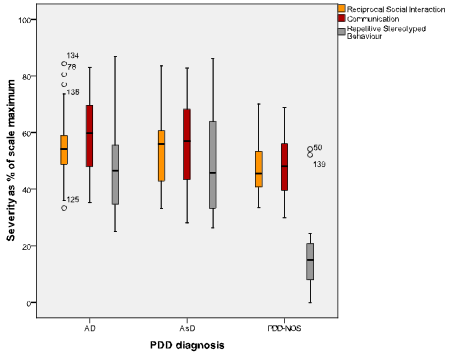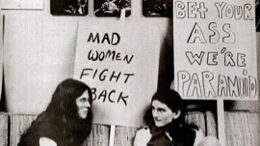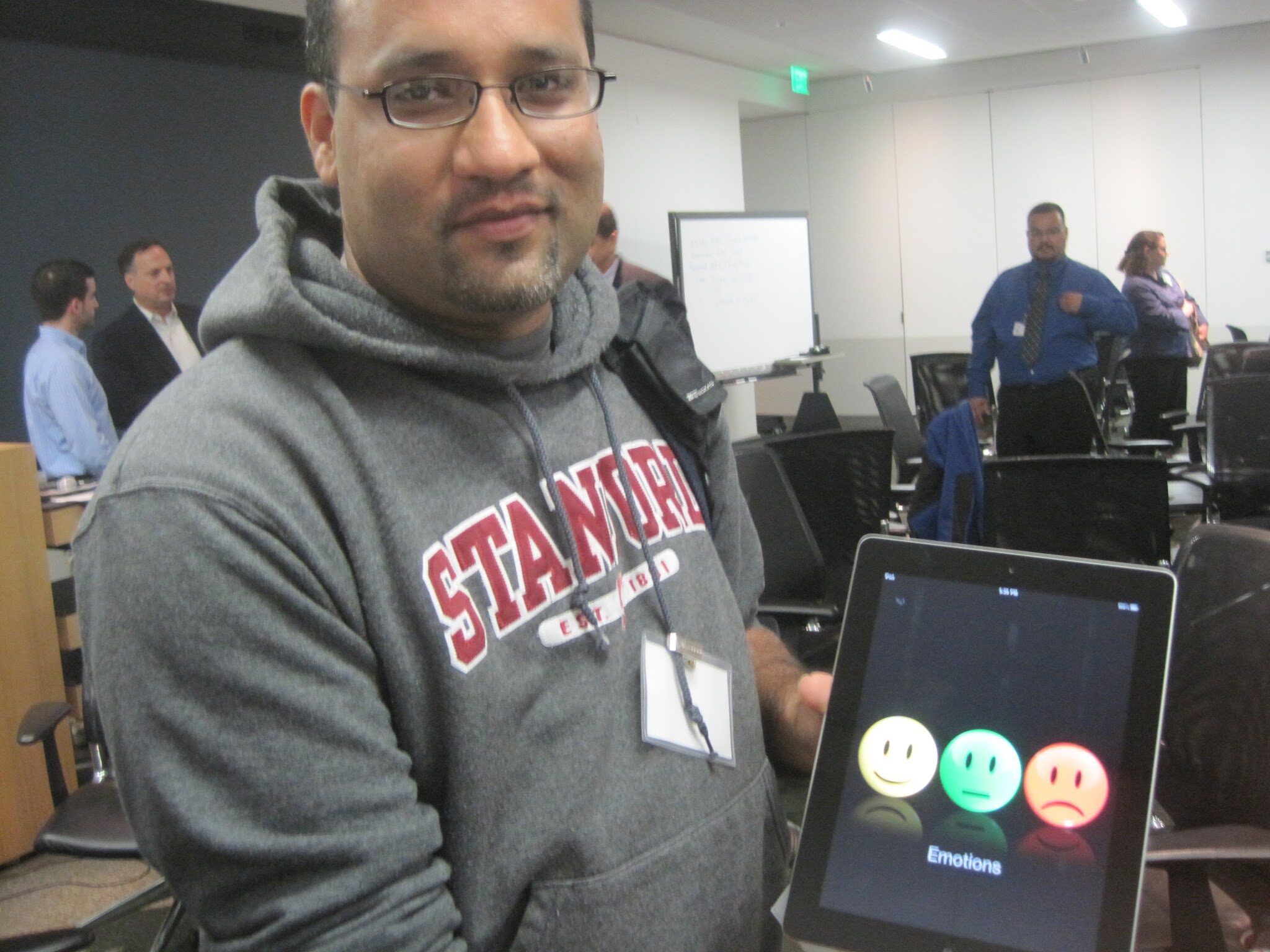Diane Levinthal www.SocialStrides.com Unless a child is diagnosed with a learning disability that is known to affect social interaction, issues can take parents by surprise. All of a sudden, we notice that the same children who played alongside peers in daycare are now alone at recess during the early elementary school years. They want friends and try to interact with peers but without success. At this age children engage in cooperative play and interactions are based on peer choice, not just who happens to be in the class or in a playgroup mom selects. Now they must be able to read the subtleties of verbal and nonverbal language and tell the difference between literal and non-literal language across people (authority figures, peers, family, acquaintances, friends) and settings (school, community, home). We take this ability for granted, but it is an awesome leap in development. We expect them to absorb the…
Year: 2011
Stephen Shore is noted for his tireless, globetrotting autism advocacy and education work. He is also such a busy and accomplished individual that he doesn’t always mention roles like being a public member of the U.S. IACC (Interagency Autism Coordinating Committee). TPGA editor Shannon Rosa had the pleasure of talking with Stephen two weeks ago. You do so many different things that people aren’t always aware of everything you do. Can you tell us about yourself, in terms of your various pursuits? I do a lot of teaching and researching at Adelphi University on issues related to the autism spectrum; specifically teaching courses on autism: an intro course, and a more second-level course called “Diagnosis and Intervention in Autism,” in which we go deeper into different approaches and techniques. I also teach an intro to Special Education and a master’s course in which students are expected to piece together everything…
Jon Brock www.crackingtheenigma.blogspot.com/ Some cases of autism are obvious. Anyone who knew anything about autism would agree that the child or adult in question was autistic. Other cases are less clear cut. Indeed, the term “autism spectrum” implies the existence of a continuum that fades gradually into what we think of as the “normal” population. Somewhere a line has to be drawn and where exactly we choose to draw that line defines what we mean by autism. It determines who is eligible to take part in autism-related research and this in turn influences the development of theories of autism. Eventually, this feeds back to our evolving definitions and cut-offs for autism. Most importantly when it comes to immediate real-world consequences, the diagnostic boundaries specify who is labeled “autistic” and, ultimately, who gains access to interventions and support. In the absence of reliable biological markers or break points in the continuum, diagnoses…
Dr. Joni Redlich, DPT www.kidpt.com Movement is an integral part of our social, emotional, and physical lives. A 4-month old excitedly kicks her arms and legs in response to the funny face dad makes, so he does it again. An 8-month old will crawl to retrieve her favorite rattle, shake it to hear the sound it makes, and then look at mom to share the experience with her. An 18 month-old takes moms hand, walks her to the kitchen, and says “juice” while pointing to the refrigerator. As a child grows, the length and complexity of movement sequences become more sophisticated. Children with autism spectrum disorder (ASD) often cannot coordinate the myriad of movements needed to complete these interactions. Although children with ASD are often not diagnosed until they are far out of infancy, studies of home videos of children later diagnosed with ASD showed motor differences that had been…
Liz Ditz www.ThinkingAutismGuide.com The first-ever Autistics Speaking Day was in 2010, and was organized by Corina Lynn Becker, assisted by Kathryn Bjørnstad. The stimulus was a fundraising proposal by an Australian public-relations organization asking neurotypicals to refrain from using social media for one day, which they called “Communication Shutdown”, and which they claimed would “encourage empathy for people with autism who find social communication a challenge. Corina was appalled. As she wrote on her blog, in the post Real Communication Shutdown ….this is supposed to help simulate the communication difficulties that Autistic people face. I’m sorry, but no. Just no. Through October 2010, Corina continued to write and tweet about her opposition to “Communication Shutdown”, and Autistics Speaking Day was born — and went viral, with over a hundred posts from autistics and autistic allies, and uncounted tweets with the hashtag #ASDay. In September 2011, Corina published The Beginnings of…
Lydia Wayman autisticspeaks.wordpress.com I went to a Town Hall meeting today regarding the cuts to the Pennysylvania Department of Public Welfare budget, which means cuts to Medicaid. And so many people were saying that the results of cuts to Medicaid services for kids with autism (because probably 75% or more of the people there appeared to be parents of kids with autism, along with clinicians who work with people on the spectrum, and autistics themselves, like me) would result in the necessity of long-term institutionalization. In essence, sure, you’ll save the money now when we lose services because we can’t afford the copays, but it’s going to come back to bite you when we need to be institutionalized one day. I read my piece in front of all those people and made my point, which was basically the same as what I just described, too. They took my letter to…
Shannon Des Roches Rosa www.ThinkingAutismGuide.com Psychiatric survivors during a protest in 1976 Lives Worth Living is a new documentary on the history of the American Disability Rights movement, specifically the critical years from World War II to the signing of the Americans With Disabilities act (ADA) in 1990. It is a necessary, unapologetic, inspiring, instructive, and far-too-short film that could easily beome a series — so many important people interviewed, so many topics covered, so quickly. (For those who want to dig deeper, the Lives Worth Living site includes an interactive timeline of international Disability Rights, and a list of interviewees.) Viewers are given no opportunity to adopt the too-common patronizing perspective towards the disability rights activists in the film — there’s no time, these people have urgent stories to tell about themselves and their movement’s history. Some subjects reject pity outright, as when Ann Ford tells how it felt…
Emily Willingham biologyfiles.fieldofscience.com daisymayfattypants.blogspot.com For background on this post, see the coverage and update at LoveThatMax.com. -The Editors When I was young, I lived a somewhat sheltered life. My parents never used racial or ethnic slurs around me or not around me, and even though I grew up in a small-ish, very southern town, the only slur I ever learned before middle school was the N-word, which I am myself to blame for having learned. At age five, rapt with the poetry of rhyme, I was working my way through the alphabet, rhyming with the word “Tigger.” When I reached N, my parents became rather dramatic and, let us say, instilled in me a permanent repulsion for the word. I was in Texas, so naturally, I did manage to hear that term again here and there. But it wasn’t until high school that I came across other slurs, mostly having…
Susan Senator www.susansenator.com “Well, that was school. I learned a lot.” This is what my husband Ned once imagined our son Nat might be thinking as he rode home from his very first day of school, back in 1993. The school was located in a junior college in the adjacent town; it was a mixed-disability class, as well as having typically developing children. Ned told me that he had no idea what Nat might make of school — it was such a big concept to understand for a three year old, especially one with “Expressive Language Disorder and Autistic-Like Symptoms.” (This was his very first diagnosis; I almost like its quaint and evasive character, in the way that I can look back on almost anything from that long ago with fondness: awww, such a little innocent naive diagnosis.) Even though we prepared him with a Nat Book (known to most…
Last week Hewlett-Packard hosted an amazing event: a Hacking Autism app hackathon, which showcased innovative and philanthropic synergy at its most brilliant. The all-volunteer event brought together notable autism experts and app developers to focus on a common goal: developing free apps for tablet environments, based on crowd-sourced ideas from the autism community, to help people with autism communicate and contribute. TPGA editor Shannon Des Roches Rosa was invited to participate as a parent and blogger resource based on her autism-specific iPad advocacy work, and found the event so incredibly positive that she is covering it in two separate posts. Part one covered the opening talks by the hackathon’s advisors, and their specific takes regarding autism and technology. Part two is about experiencing the event itself. Innovative technology can make a difference for autistic people. My son Leo excels in ways we (and Apple) never anticipated via iPad/tablet apps, which…



